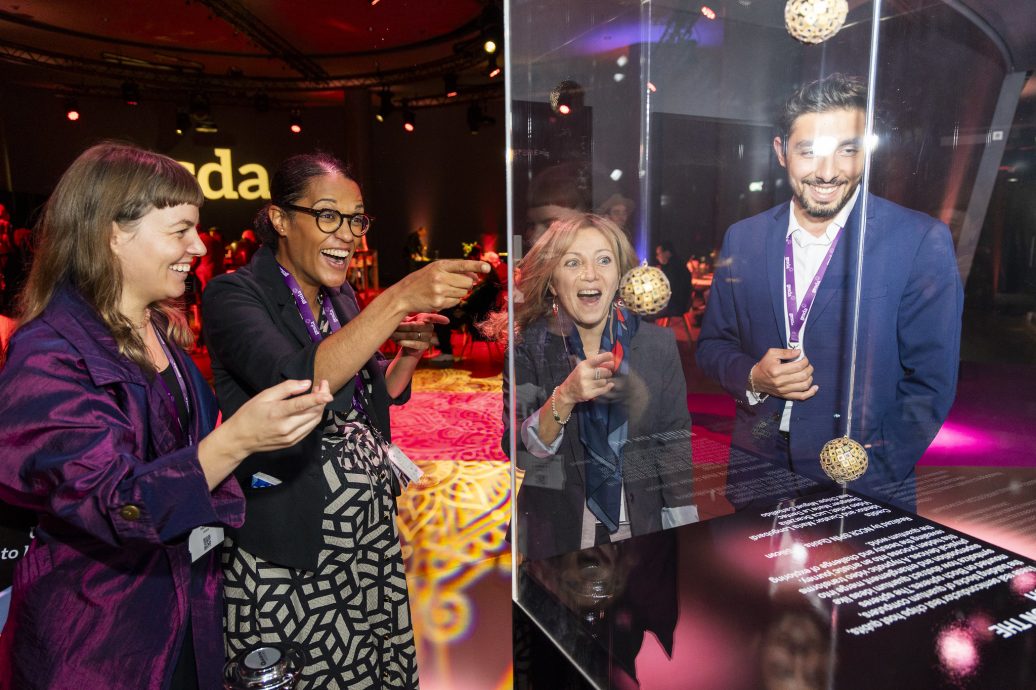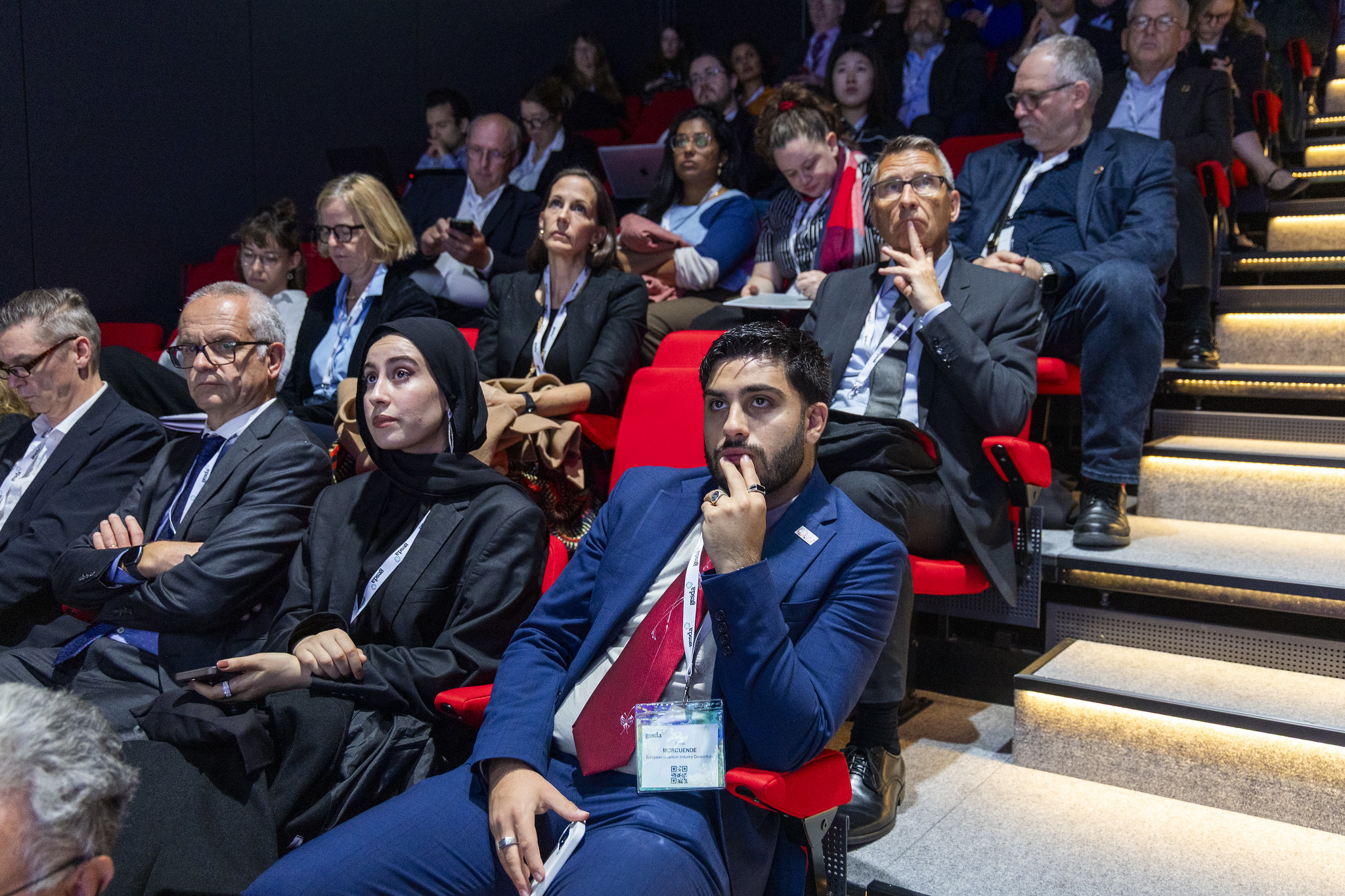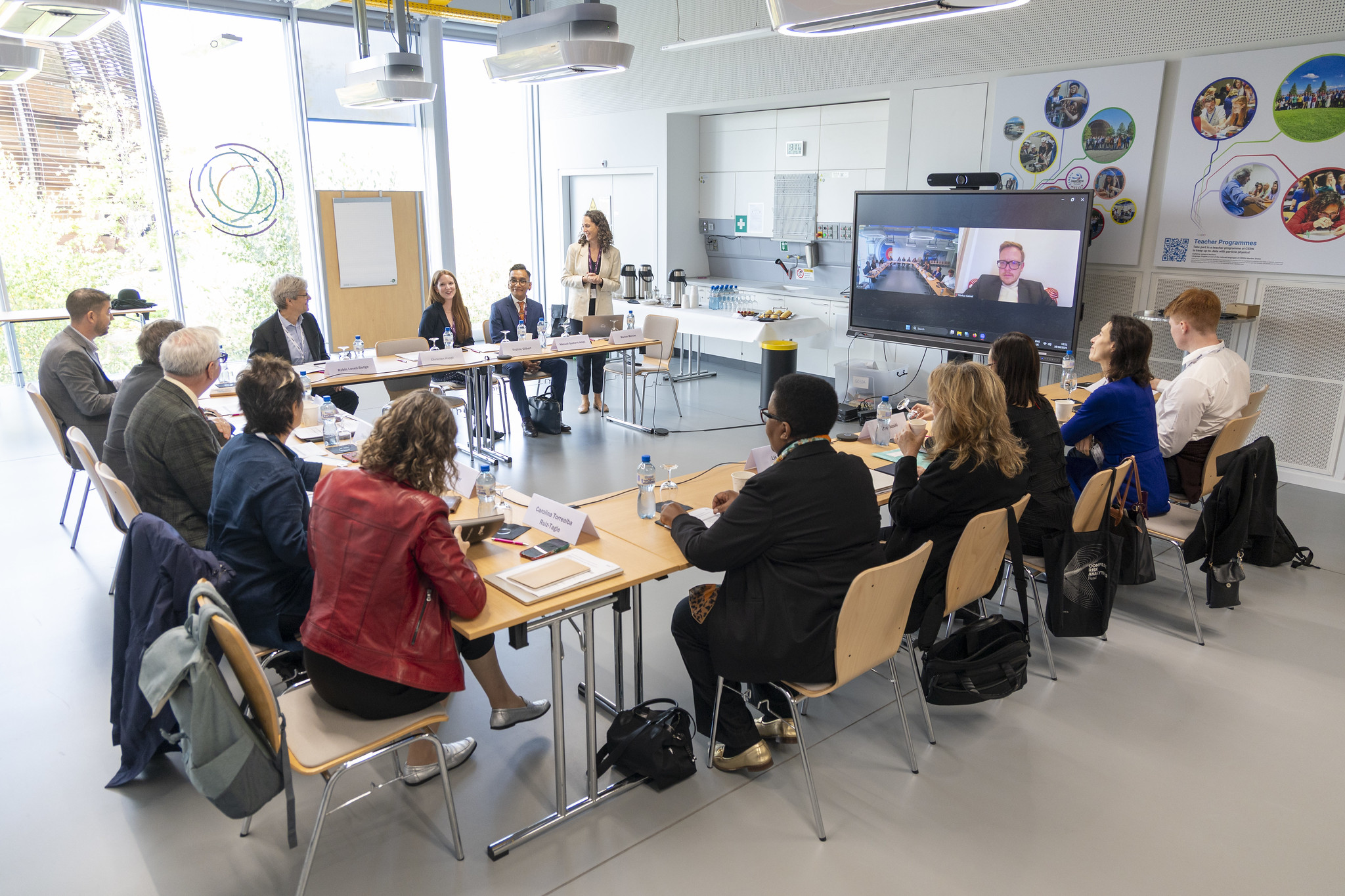
Global Summit Focuses on Funding, Diplomacy, and Governance to Control Frontier Technologies
Initiatives and Public-Private Models Chart a Positive Future for Global Science
Story by John Heilprin | All photos ©GESDA/Benedikt von Loebell
Global science leaders at the GESDA Summit concluded that a new consensus around “anticipatory governance” is stabilizing international scientific cooperation amidst geopolitical friction.
Focus has shifted from reacting to breakthroughs to proactively building frameworks that can balance corporate innovation with public benefit, with policymakers tackling challenges in funding, technology deployment, and global cooperation.
Discussions highlighted concrete steps toward strengthening the global research ecosystem and ensuring its sustainability. Maria Leptin, President of the European Research Council (ERC), said it is prepared to offer substantial funding and academic refuge and “stands ready to offer substantial funding and academic refuge to scientists affected by funding cuts or freedom restrictions elsewhere in the world,” solidifying Europe’s role as a force dedicated to “freewheeling, curiosity-led research.”
Europe is backing this with tangible strategies, including the “Choose Europe for Science” package and Deep Tech Talent Initiative to attract international expertise. Magdalena Skipper, Editor-in-Chief of Nature, said the European Union and North America remain epicenters for social sciences and humanities, providing a diverse basis for ethical technology advancement.
The pharmaceutical sector’s Public-Private Partnership (PPP) model, exemplified by the Innovative Medicines Initiative (IMI), was praised as a blueprint for advanced fields, directing resources toward complex challenges like anti-microbial resistance.
Policy discussions also centered on securing future financing, with Karthik Ramani, Professor of Mechanical Engineering, Purdue University, proposing a tax to fund foundational academic research that corporations rely on for talent and innovation.
 Summit participants listen to a session on “Synthetic Genomics: Promise and Precaution.”
Summit participants listen to a session on “Synthetic Genomics: Promise and Precaution.”
Governing Frontier Technologies
The need for new governance structures was sharply focused on synthetic biology, AI, disarmament, and food security. The discussions on Lethal Autonomous Weapons (LAWs) were framed as an urgent opportunity to deploy anticipatory governance.
Beatrice Fihn, director of Lex International Fund and a leading advocate for disarmament, stressed the diplomatic necessity of embracing friction to achieve results. Fihn emphasized that policy agreement requires embracing “friction as a catalyst for meaningful compromise,” and urged politicians to engage the public in a “more genuine dialogue about the complexity and duration of global challenges” to build long-term trust.
This approach, focused on proactive and sincere diplomacy, reinforces GESDA’s mission to “Use the Future to Build the Present,” ensuring that technological breakthroughs are proactively steered toward shared futures, not fragmented risks.
The crisis in global food supply was detailed by Sarah Gurr, Chair of Food Security at the University of Exeter, who highlighted the devastating impact of fungal diseases. Gurr said fungi are the most important agents of crop disease, causing losses in the field of “between 10 and 23% of a crop each year” and an additional “10 to 20% post-harvest.”
These losses, she noted, are enough to feed “600 million to 1.4 billion people.” Gurr stressed the acceleration of this threat due to climate change, confirming that pathogens are moving at a depressing rate of “7.8km per year to the global north.” She pointed to a critical governance failure regarding dual use, noting that resistance to agricultural fungicides is transferring to human medicine, leading to serious clinical problems.
Gurr called for an urgent global awareness campaign and suggested the need for entities like the World Health Organization to “make a list of pathogens which affect crops, as well as the pathogens that affect humans” — a core One Health policy. Solutions focus on genomics, AI-based modeling, gene-edited crops, and RNA interference (RNAi) sprays.
In synthetic biology, Matt James, Colossal Foundation’s executive director, argued genetic rescue technologies are essential since “conventional conservation cannot keep up with the rate, the scale of biodiversity loss that we see today.” James confirmed the foundation focuses on restoring “extinct functions,” not exact replicas. “It is impossible to replicate the exact physiology and behavior of an extinct species,” he said, adding the aim is to create “extinct functions for tomorrow’s ecosystem.”
James called for creation of international regulatory test spaces to minimize risks. “What I’d like to see on the regulatory front is the creation of sandboxes, these international places where we can work together to experiment on innovative technologies, understanding that every day we wake, every day we talk about regulation, we don’t act, we’re falling further behind.”
 Erika Kraemer-Mbula, Professor of Economics, University of Johannesburg, discusses “The Future of Innovation Economies.”
Erika Kraemer-Mbula, Professor of Economics, University of Johannesburg, discusses “The Future of Innovation Economies.”
Geopolitical Resilience
Minhyong Kim, Professor of Mathematical Sciences and Director of International Center for Mathematical Sciences in Edinburgh, offered a key forecast on the human-machine collaboration in mathematics. Within the 5-year horizon, AI will consistently outperform humans in problem-solving that does not require entirely new theoretical frameworks. By the 10-year horizon, AI is expected to generate genuinely interesting conjectures.
Most significantly, Kim predicted that within 25 years, the greatest scientific contribution will come from defining the formal limits of AI in mathematics — a process that, like past impossibility theorems concerning perpetual motion or perfect deduction, is expected to spur the flourishing of new mathematical fields.
The Summit reinforced the notion that influence in global science is less about national size and more about strategic focus and co-creation. Chris Leck, a Group Chief Technology Officer in the Prime Minister’s Office of Singapore, highlighted how Singapore leverages its focus on semiconductor chips and national priorities to set and shape global technical standards.
Sabina Stadler, Ambassador and Chief Strategist for the Ministry of Foreign and European Affairs, Slovenia, demonstrated how her country translates expertise in science and the sponsorship of the U.N. World Bee Day into global multilateral leadership.
Furthering the concept of “innovation diplomacy,” Hilal Lashuel of the Qatar Foundation stressed the importance of smaller nations, insisting that “partnerships must be built on equal terms, allowing these nations to act as a ‘bridging power.'”




 Members of the committee that reviews the GESDA Radar hold a workshop meeting on the sidelines of the Summit.
Members of the committee that reviews the GESDA Radar hold a workshop meeting on the sidelines of the Summit.






